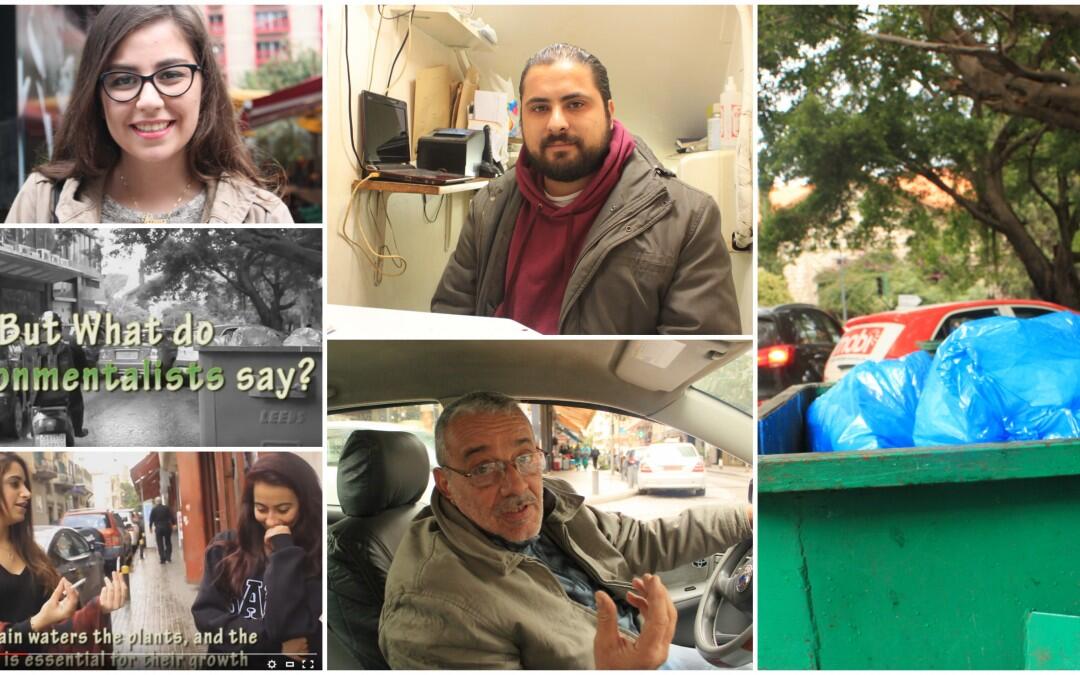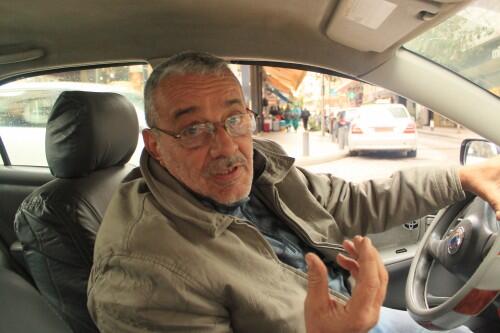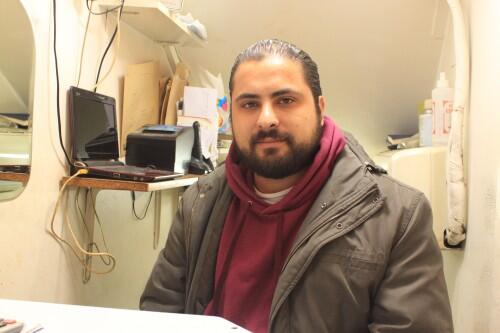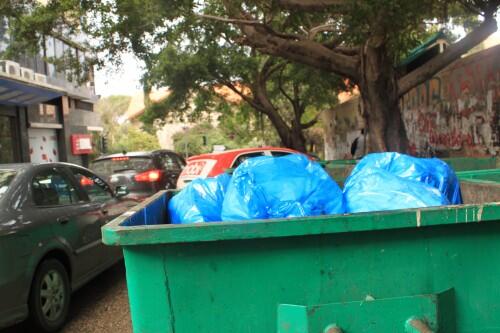It rained in Lebanon in the recent days, while wastes are still piled-up in many regions. Was this rain a blessing which cleaned the air, or a curse which causes diseases to the Lebanese? Environmentalists have previously said that rain could cause the emission of poisonous materials from garbage. What does really happen when garbage is soaked in water? Do the Lebanese citizens know the truth around water that “does not clean the air” but cause cancers?
Greenare.me website asked several people if they think that rain in the last few days in Lebanon cleaned the air or drew fears of diseases happening due to poisonous materials emitted from wastes. The opinions varied, and some of them were sarcastic.
Remove Wastes from Streets
According to a taxi driver, who was sitting in his car near a waste container in Hamra street- Beirut, “rain transfers the garbage to places we never thought we would see garbage at”, adding with sad eyes “It’s a pity”. Another lady holding her children’s hands said that “we were breathing the smell of garbage, and now all kinds of poisonous chemicals are falling on us due to rain transferring with it all the poisonous material being emitted from garbage”.
Another citizen believes that “nature is much wiser then us in treating these issues”, telling us that the rain in these days could be both harmful and benefiting at the same time. We walked a few steps to hear the opinion of a man in his forties “If they remove the garbage, all regions in the country will be cleaned when it rains”.
Lama, a university student, saw that “the rain was harmful, since garbage is still all over the place”, adding that “when the garbage is soaked in water, more diseases occur”.
Opinions, were humorous or sarcastic at times, conveying our bittersweet reality in Lebanon, amid the waste crisis.
Germs and Viruses awaiting us…
In order to know about the environmental/scientific view on that matter, we contacted the environmentalist and consultant Dr. Naji Kodeih, who confirmed that “the rain will assist the spread of chemical and microbiological pollutants, of germs and viruses, found in wastes which are still on the streets”
The environmentalist said that “Unfortunately, these pollutants are transferred more easily with heavy rain”.;
Dr. Kodeih said that “People residing in places where there is more garbage on the streets are more vulnerable to the impact of these pollutants”, explaining that “In areas outside the cities, it is much easier for the transition of these pollutants to groundwater and surface water, exposing the citizens to worse risks, especially that the rain leads to the spread of wastes, in addition to chemical and non- chemical pollutants over a wider area”.
He continues that “this increases people’s exposure to them, and facilitates soil, surface water, and groundwater pollution”.
The result is catastrophic then, and Fairouz’ song which praises the rain, which nourished plants and increases crops is perhaps changed now into sad lyrics mentioning that rain in Lebanon nowadays is increasing the possibility of the occurrence of diseases, amid an ongoing waste crisis since 8 months. Hoping that the government will start implementing the environmental and healthy ways in treating this “deadly” crisis.















